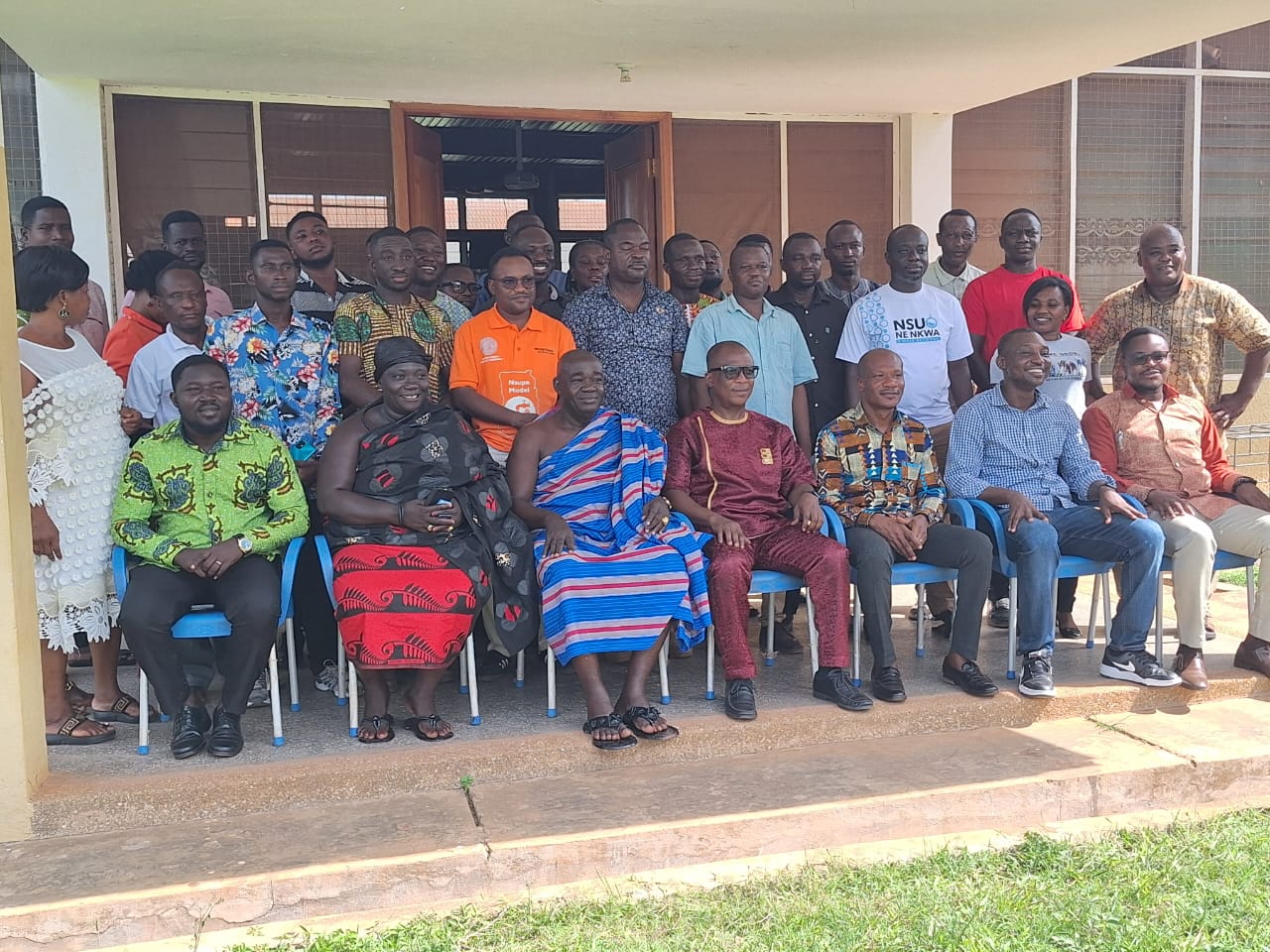Asutifi North District achieves open-defecation-free status, 90% district-wide water coverage – Nsemkeka
Asutifi North District in the Ahafo Region has achieved open-defecation-free status and 90 per cent district-wide water coverage, marking a significant milestone in safe Water, Sanitation, and Hygiene (WASH) practices.
From 40 per cent water coverage in 2018, the assembly, with support from IRC and other development partners, had, as of December 2024, extended WASH services to almost every basic school, health facility, and community within the district.
With poor sanitation and hygiene practices in 2018, the area, under the Asutifi North Ahonidie Mpontuo (ANAM) WASH initiative, has eliminated open defecation and hopes to achieve 100 percent water coverage by 2030.
These details were disclosed at a project inception meeting on “Technical Assistance to Government on Strengthening Safe Water Policies and Regulations in Ghana” in Kenyasi, Ahafo Region, by the Asutifi North District Assembly (ANDA) and IRC Ghana.
The project, with funding support from the Conrad N. Hilton Foundation, will be implemented from January 2025 to December 2027, with key partners including the districts and municipalities, the Ahafo Regional Coordinating Council, and the National Development Planning Commission.
Jerry Atengdem, a water expert with IRC, said the project will address key challenges, notably the insufficient integration of operations and maintenance in WASH master plans, which limits the development of clear frameworks, guidelines, and agreements between districts and service providers to ensure sustainable service delivery.
He stated that it will also address the inadequate utilization of information systems for monitoring and reporting, which hampers the preparation of comprehensive WASH annual performance reports by districts and the RCC, limiting effective tracking of WASH master plan implementation.
“The project seeks to solve the limited alignment between WASH master plans and Medium-Term Development Plans (MTDPs), leading to inadequate prioritization of WASH interventions in MTDPs,” Mr. Atengdem reiterated.
The water expert noted that insufficient information and platforms for citizens and CSOs to engage and hold duty bearers accountable for quality services and the progress of WASH master plan implementation will be addressed.
He indicated that the project will also support the six districts in the Ahafo Region to implement WASH plans, the RCC to coordinate their implementation, and the NDPC to use the new planning guidelines to roll out WASH planning across other districts in Ghana.
Samuel Badu Baiden, District Coordinating Director of Asutifi North, said the project seeks to help the NDPC roll out the revised guidelines for WASH planning across other districts in the country.
He noted that it will, in addition, enable citizens to engage with service providers and district authorities to demand accountability and quality services.
The director emphasised that key activities under the project will support Independent Water User Groups (citizens, traditional authorities, and CSOs) in each district to engage service providers and district authorities.
“It will also develop and operate a framework and mechanisms for engagement, and generate information and data-driven messages on key WASH issues to increase momentum on advocacy issues,” Mr. Baiden added.
The meeting also deliberated on pressing project issues, including ensuring effective support for the districts to apply the new NDPC planning guidelines and align WASH master plans with MTDPs (2026–2029), with a focus on WASH.
It also discussed strategies citizens can use to engage with service providers and district authorities to demand accountability and ensure the delivery of quality services.
Additionally, key elements to be included in action plans for operations and maintenance by district assembly staff in exercising their oversight roles—and by service providers in sustainably operating and managing WASH infrastructure and systems—were highlighted.

